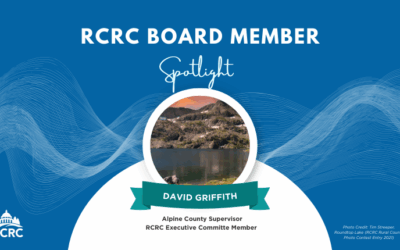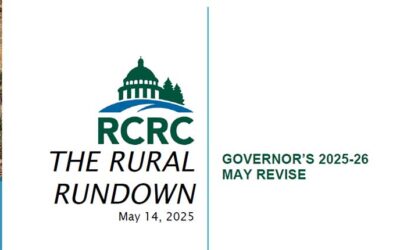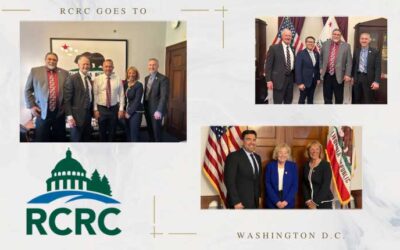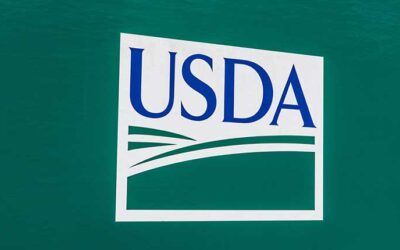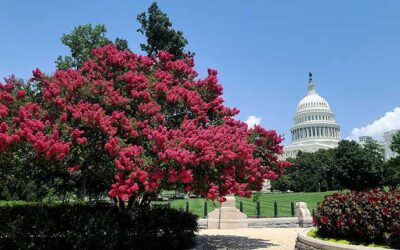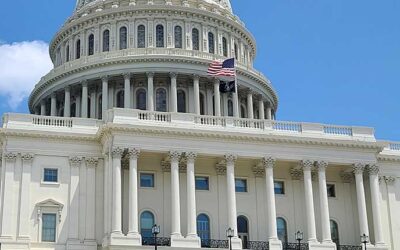On May 21, California Congressmembers David Valadao (R-Hanford), Vince Fong (R-Bakersfield), and Jim Costa (D-Fresno), along with Representative Sheila Cherfilus-McCormick (D-FL), reintroduced the Farm to Market Road Improvement Act. The bipartisan legislation aims to...
EPA Reinforces Alignment of Clean Water Act Section 401 with “Powering the Great American Comeback” Initiative
On May 22, the U.S. Environmental Protection Agency (EPA) issued a memorandum clarifying the specific and limited role of States and Tribes in the federal licensing and permitting processes under Section 401 of the Clean Water Act (CWA). The EPA reiterates its...
U.S. Senate Votes to Rescind Three California Clean Air Act Waivers, Governor Newsom Responds
On May 22, the U.S. Senate passed three Congressional Review Act (CRA) resolutions to revoke waivers that allow California to adopt tougher vehicle emission standards than the national standard. House Joint Resolution 87 overturns a waiver that allows California to...
RCRC Board Member Spotlight: David Griffith (Alpine County) – Executive Committee Member
Welcome to the next installment of the RCRC Board Member Spotlight, a recurring feature of the Barbed Wire! The Board Member Spotlight is intended to familiarize subscribers with RCRC Board members, providing insights from their background in public service to their...
Visit California Releases 2024 Economic Impact Report and 2025 Forecast
Each year, Visit California publishes an in-depth analysis of the tourism industry’s statewide and county-level economic contributions. The 2024 report reflects the sector’s continued resilience and growth – with travel spending reaching a record high $157.3 billion....
DHCS Announces First Round of Prop 1 BHCIP Funding
On May 12th, the Department of Health Care Services announced $3.3 billion in grants from the first round of Proposition 1 Behavioral Health Continuum Infrastructure Program (BHCIP) Bond funding. These grants were awarded to counties, non-profits, for-profits, and...
U.S. House Passes Fire Safe Electrical Corridors Act
On May 13, the House passed the bipartisan Fire Safe Electrical Corridors Act (H.R. 2492) by voice vote. This bill would allow the U.S. Forest Service to approve the removal of hazardous trees near power lines on federal forest lands without requiring a timber sale....
House Agriculture Committee Advances SRS Reauthorization by way of Reconciliation Bill
On May 14, the House Agriculture Committee voted 29-25 along party lines to advance its reconciliation bill. While the measure contains many impactful provisions, perhaps the most notable is the inclusion of reauthorization language for the Secure Rural Schools (SRS)...
Governor Newsom Seeks to Include RCRC-Sponsored CEQA Measure in Budget Package
On May 14, Governor Newsom unveiled the May Revisions to his proposed budget. As part of that presentation, he acknowledged and thanked Assembly Member Wicks and Senator Wiener for their efforts to undertake significant California Environmental Quality Act (CEQA)...
RCRC’s Rural Rundown of the Governor’s May Revision of the 2025-26 State Budget
On Wednesday, May 14th, Governor Newson released his Administration’s May Revision of the 2025-26 State Budget. This revision is the next step in the State’s budget negotiations with lawmakers, who must pass a budget by June 15 for the July 1 start of the 2025-2026...
RCRC Delegation Returns to Washington DC
This week, an RCRC delegation returned to Washington DC to meet with the Administration about issues of importance to our rural communities. This was a follow up to the visit earlier this year, which occurred in late February, while many transitions were still...
USDA to Expedite $21 Billion in Previously Approved Disaster Assistance
On May 7, USDA Secretary Rollins announced plans to expedite the distribution of $21 billion in Congressionally-appropriated disaster assistance for farmers and ranchers impacted by recent natural disasters. The rollout includes payments under the Emergency Livestock...
USDA Announces Grants to Boost Timber Production, Reduce Wildfire Risk
On May 6, the U.S. Department of Agriculture announced $23 million in grants through the Forest Service’s Hazardous Fuels Transportation Program to support the transport of low-value wood and dead trees from national forests to processing facilities. The program...
U.S. Forest Service Testifies in Support of Fix Our Forests Act
On May 6, Acting Associate Chief of the Forest Service, Christopher French, testified before the Senate Agriculture Committee during its legislative hearing on the bipartisan Fix Our Forests Act, which aims to reduce catastrophic wildfire risk and improve forest...
Bill of the Week: Assembly Bill 1288 (Addis and Valencia) – Registered Environmental Health Specialists
RCRC, in coalition with our county association partners, supports Assembly Bill 1288. This measure, authored by Assembly Members Dawn Addis (D-Moro Bay) and Avelino Valencia (D-Anaheim), would extend the time in which local health/environmental health departments may...
America the Beautiful Act Introduced to Extend and Expand National Parks and Public Lands Legacy Restoration Fund
On Thursday April 30, Senators Steve Daines (R-MT) and Angus King (I-ME) unveiled bipartisan legislation, the America the Beautiful Act, which would reauthorize and expand the National Parks and Public Land Legacy Restoration Fund. This measure would increase the...
House Votes to Overturn California-Specific Environmental Waivers and Rules
This week, the House passed four Congressional Review Act (CRA) resolutions addressing environmental waivers and rules issued during the Biden administration, each tied to California-specific standards or policy decisions. All four joint resolutions now await Senate...
CEQA Wildfire Bills Advance Through Assembly Committee
On April 28, the Assembly Natural Resources Committee heard and passed two bills that provide California Environmental Quality Act (CEQA) relief for wildfire prevention projects. AB 1227 (Ellis, R-Bakersfield and Gallagher, R-East Nicolaus) creates a narrow CEQA...
RCRC-Sponsored CEQA, Vape, and Enforcement Bills Advance
Last week, three RCRC-sponsored measures advanced through policy committees. Senate Bill 607 (Wiener, D-San Francisco) advanced through the Senate Local Government Committee 5-1 (over the Chair’s opposition) on April 30, after passing the Senate Environmental Quality...
Bill of the Week – Assembly Bill 418 (Wilson): Property Taxation: Tax-Defaulted Property
RCRC, in coalition with our county government partners UCC and CSAC, supports Assembly Bill 418, authored by Assembly Member Lori Wilson (D-Suisun City). This measure preserves the ability of California counties to utilize Chapter 8 sales of tax-defaulted properties....
USDA Announces Disaster Assistance Funding Available to Rural Communities Impacted by Recent Disasters
On April 22, U.S. Secretary of Agriculture Brooke Rollins announced $340.6 million in U.S. Department of Agriculture disaster assistance to deliver relief to farmers, ranchers and rural communities impacted by natural disasters that have caused devastation across the...
Congress Members Urge FEMA to Restore BRIC Grant Program
Last week, Representatives Mike Thompson (D-St. Helena) and Seth Moulton (D-MA) led a letter with 26 other representatives opposing FEMA’s decision to terminate funding under the Building Resilient Infrastructure and Communities (BRIC) program and urging the agency to...
DOI Implements Emergency Permitting Procedures to Strengthen Domestic Energy Supply
In response to President Trump’s declaration of a National Energy Emergency, the U.S. Department of the Interior will implement emergency permitting procedures to accelerate the development of domestic energy resources and critical minerals. These measures are...
Senate Energy Affordability Proposal Extends and Expands Energy Commission’s AB 205 Opt-In Permitting Program that Bypasses Local Permitting Processes
This week, the Senate announced a legislative package intended to increase affordability related to energy, housing, and workforce. Amendments to the energy bill, Senate Bill 254 (Becker, D-Menlo Park), make a number of changes to address permitting challenges and...
Bill of the Week: Assembly Bill 1383 (McKinnor) – Public Employees’ Retirement Benefits
In coalition with local government and public agency partners, RCRC opposes Assembly Bill 1383, authored by Assembly Member Tina McKinnor (D-Inglewood). This measure would make several significant changes to the public employees’ retirement benefits, increasing...
Fish and Game Committee to Consider Coyote Hunting Limits at May Meeting
The Wildlife Resources Committee, a subcommittee of the California Fish and Game Commission, is set to consider a proposal that would place coyotes under a bag limit and seasonal hunting restrictions. The proposal, which first surfaced earlier this year, was...
RCRC to Host Webinar May 5: SMGB Mining Ordinance Update Project
Join RCRC and the State Mining and Geology Board (SMGB) on May 5th at 10:00 AM for an informative webinar on the statewide effort to update local mining ordinances. In light of significant changes to state mining law in 2017, the SMGB is working with lead agencies to...
Bipartisan Bill Introduced in U.S. Senate to Create New Disaster Resilience Tax Credit for Communities Impacted by Natural Disasters
On April 8, U.S. Senators Adam Schiff (D-CA) and Tim Sheehy (R-MT) introduced the Facilitating Increased Resilience, Environmental Weatherization and Lowered Liability (FIREWALL) Act, a bipartisan bill aimed at promoting community resilience to natural disasters...
U.S. Senate Advances Wildlife Service and EPA Water Office Nominees
On Wednesday, April 9, the Senate Environment and Public Works Committee voted to advance two nominees to the full Senate for consideration: Brian Nesvik, nominee for Director of the U.S. Fish and Wildlife Service; and Jessica Kramer, nominee for EPA Assistant...
Secure Rural Schools Reauthorization Update
RCRC continues to advocate for passage of the Secure Rural Schools (SRS) Reauthorization bill, a top priority for rural counties in California and around the nation. The last SRS reauthorization was a 3-year extension in 2021 as part of the Bipartisan Infrastructure...
 Sarah Dukett
Senior Policy Advocate
Sarah Dukett
Senior Policy Advocate
 Leigh Kammerich
Senior Policy Advocate
Leigh Kammerich
Senior Policy Advocate
 John Kennedy
Senior Policy Advocate
John Kennedy
Senior Policy Advocate
 Staci Heaton
Senior Policy Advocate
Staci Heaton
Senior Policy Advocate
 Tracy Rhine
Senior Policy Advocate
Tracy Rhine
Senior Policy Advocate
 Eric Will
Policy Advocate
Eric Will
Policy Advocate
 Mary-Ann Warmerdam
Senior Vice President Governmental Affairs
Mary-Ann Warmerdam
Senior Vice President Governmental Affairs




